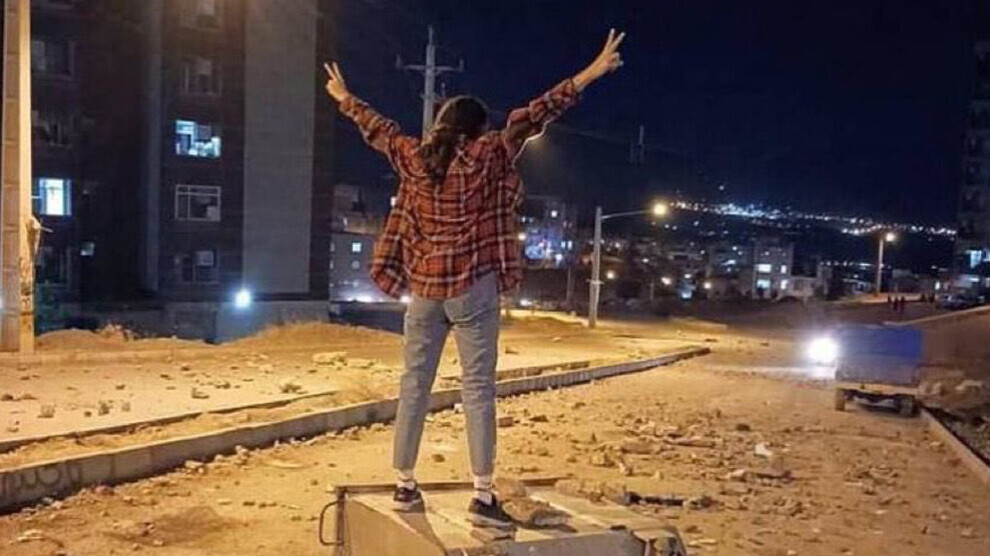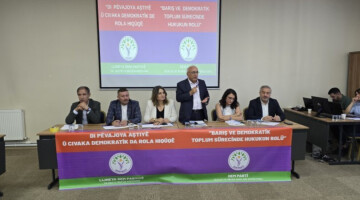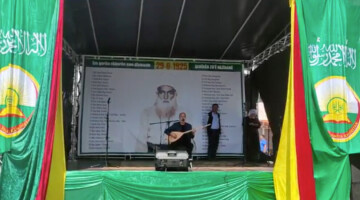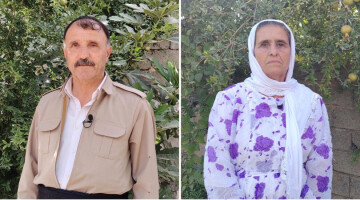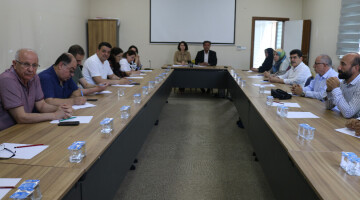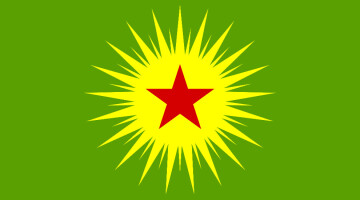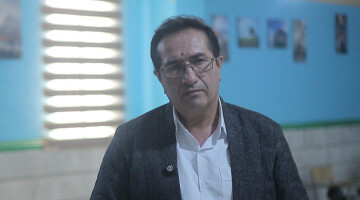The Iranian regime is intensifying repression against the resistance in East Kurdistan. War-like conditions have prevailed in Seqiz (Saqqez) and Sine (Sanandaj) since the weekend. Since early Monday shots and explosions have echoed through the streets, police and Basij militias have been firing on residential buildings, wrecking cars and beating up demonstrators. The army is apparently preparing for a siege of both cities in order to put down the popular revolt that has been raging for more than three weeks. There is talk of an impending massacre on social media, and the Internet has been almost completely shut down. Amnesty International was alarmed by the crackdown in Sine and the digital blackout. The organization called on UN member states to put more pressure on the Iranian regime and its officials to end violence against protesters.
The human rights organization Hengaw reported a massive deployment of security forces in several Kurdish cities. Additional counterinsurgency units were deployed to Sine on Monday from central Iran's Yazd, and several warplanes were sighted at the city's airport in the evening. According to Hengaw, at least five people in the region have been murdered by Iranian regime troops since Saturday, and dozens have been injured. It was initially unclear whether they were dead or injured again last night. It is also not known how many people died as a result of the violent crackdown on the protests. Human rights groups put the number of dead at at least 185, but fear many more victims.
The demonstrations in Seqiz and Sine are a kind of microcosm of the protests that have shaken the country since the violent death of 22-year-old Jina Mahsa Amini. The Kurdish woman, who came from Seqiz, was arrested by the Morality Police in Tehran on 13 September for allegedly violating Iran's dress code. She died three days later as a result of police violence. At her funeral on 17 September, the first protests broke out, which quickly turned against the ruling clergy and the system of the Islamic Republic, led by women and young people, chanting the slogan "Jin, Jiyan, Azadî" (woman, life, freedom).
Protests spread to oil and gas industries
Meanwhile, workers in the oil and gas industry are also taking part in the revolt against the regime. More than a thousand workers at the Bushehr, Damawand and Hengam petrochemical plants in the Persian Gulf port city of Assaluje have been on strike and protesting since Monday, Radio Farda, the Iranian affiliate of Radio Free Europe/Radio Liberty, reported. Some of the workers at Iran's state-owned Abadan refinery also joined the strike by petrochemical workers in Assaluje. Video recordings showed dozens of men, some of whom were masked, shouting protest slogans such as "Death to the dictator".
In internationally sanctioned Iran, the oil and gas industry is an enormously important source of income. If the resistance movement gains traction among the workers in the industry, that would pose a serious threat to the leadership in Tehran.

